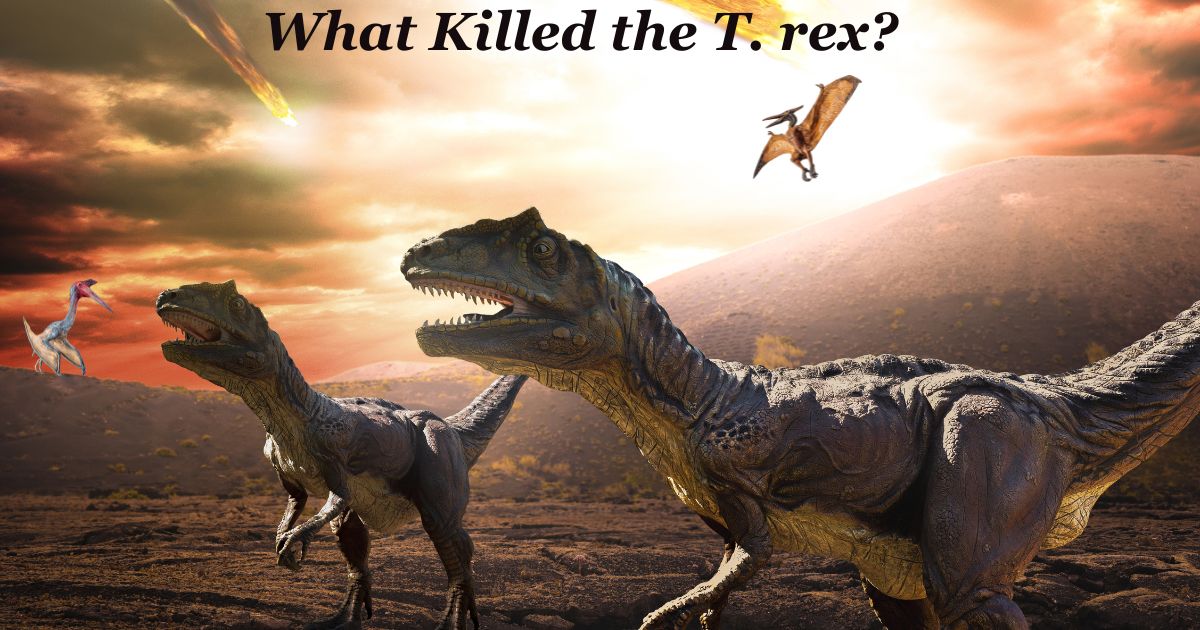Introduction
Tyrannosaurus rex, abbreviated as T. rex, has fascinated researchers and devotees for centuries. “What Killed the T. rex?” One of the most important charming astounds remains. This article aims to investigate various hypotheses and prove the extinction of this amazing animal, emphasizing the essential catchphrase: And this you should know. So let’s find out what killed T. rex?
Hypotheses on the Extinction of T. Rex
Climate change and natural changes
A driving hypothesis suggests that dramatic climate changes and natural changes played a major role in the extinction of T. Rex. As the soil experienced drastic changes in temperature and habitat, the T. rex, along with numerous other species, struggled to adjust. These changes would have affected the availability of prey and the suitability of habitats, essentially affecting T. rex’s ability to survive.
space rock impact theory
“What Killed the T. rex?” The most widely accepted explanation for A space rock affects the hypothesis. About 66 million years ago, a huge space rock collided with the soil, creating the Chicxulub cavity on the Yucatán Promontory in Mexico. This cataclysmic event is believed to have triggered a worldwide climate catastrophe, including massive wildfires, tsunamis, and “nuclear winter” conditions that have blanketed the Earth’s surface. But the light of the coming day has decreased completely. About 75% of Earth’s species are facing mass extinctions due to natural changes, counting the T-Rex.
Volcanic activity
Another notable factor that may have contributed to the extinction of the T-Rex is extensive volcanic activity. The Deccan ranges in present-day India speak to one of the largest volcanic regions on Earth. The terrifying volume of volcanic material released into the atmosphere seems to have completely changed the climate of the entire world, which, counting the T-Rex, is now driving the fighting species. .
Effects on ecosystems
The extinction of T. rex had significant effects on the biological systems of the time. As bat-predators, their disappearance would have had the effect of food conflicts, changes in the adjustment of biological systems, and cleared the way for the rise of untapped species in the post-dinosaur era.
FAQs For What Killed the T. rex?
What evidence supports the asteroid impact theory?
The most important supporting evidence includes the worldwide occurrence of iridium-rich soil layers, which are rare on Earth but common in space rocks, and the discovery of stunned quartz and microtectites, which represents a high-energy impact event.
It seems that T-Rex lived in limited areas?
While this is an interesting hypothesis, there is no evidence that T. rex or any other non-avian dinosaur survived the mass extinction event. There is a clear boundary in the fossil record, known as the K-Pg boundary, after which no dinosaur fossils have been found.
How did some species survive the extinction event?
Species that survived mass extinction tended to be less, more versatile, and better able to survive on limited resources. Countless marine species and small warm-blooded animals managed to perpetuate the brutal conditions, eventually giving rise to the diverse life forms we see today.
Does T. rex have any modern relatives?
T. Rex’s closest living relatives are birds. Through evolutionary processes, a few theropod dinosaurs, which include T. rex, gave rise to primitive winged creatures. Today’s feathered creatures inherit the legacy of their stolid dinosaur ancestors.
Result
Finally, the address of “What Killed T. rex?” It is answered by a combination of components, accounting for catastrophic space rock impacts, climate change, and widespread volcanic activity. These opportunities triggered a mass extinction that reshaped life on Earth, driving the end of the dinosaurs’ reign, counting the iconic T-Rex. This moment in history serves as a reminder of the delicate adjustments within ecosystems and the impact of sudden natural changes on life on our planet. As we continue to reflect on and seize these opportunities, we pick up bits of knowledge in the forms that have shaped life on the soil, revealing important lessons for the future.
Through careful logical reasoning and progressive investigation, “What Killed the T-Rex?” It doesn’t give as it were approximately the answers of the past but additionally provides insight into the versatility and versatility of life in the face of devastating opportunities.

